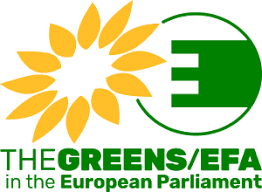
https://www.europarl.europa.eu/legislative-train/theme-europe-as-a-stron...
A good article covering the issue:
http://sdg.iisd.org/news/eu-parliamentarians-analyze-options-for-import-...
The European Parliament has asked for a legislative proposal on an
effective traceability mechanism for goods produced through forced and
child labour.
This could pave the way for a complete ban on the importation into the
EU of goods produced through modern forms of slavery or forced labour,
especially forced work of vulnerable groups extorted in violation of basic
human rights standards. No legislative initiative has been proposed yet.
The Parliament considers that forced labour and child labour need to
be taken into account in international trade relations. Therefore, it has
called on the EU to reflect on ways of finding evidence of these practices,
and in particular to establish an effective traceability mechanism for the
goods being
produced by means of forced or child labour in order to ban imports of
these goods.
The recommendation to the Commission to initiate a legislative proposal
on a traceability mechanism banning the import of goods produced using
modern
forms of slavery or forced labour was put forward in a 2010 resolution on
human rights, social and environmental standards in International trade agreements.
Further resolutions, on child labour in the cocoa sector (2012), and on
the EC-Uzbekistan partnership and cooperation agreement (2011),
reaffirmed the proposal with specific respect to forced child labour,
while the 2013 resolution on the global cotton value chain referred to a
traceability mechanism for goods produced through child or forced labour.
Such an instrument would have implications both for bilateral and multilateral trade agreements.
Responding to a Council request, in 2013 the Commission drafted
a staff working document on the worst forms of child labour.
The document concluded that trade restrictions would be of only
limited effect or even counterproductive, because child labour is
caused by poverty and
takes place mainly in economic sectors that do not produce for export,
such as subsistence agriculture. It also argued that a traceability
mechanism would be
difficult to implement,
especially in the case of more complex supply chains, including
for example the auction of
agricultural commodities.
In order to be effective, it would also require the participation of other
major importing countries, and would impose significant costs on poor
countries.
In its June 2016 conclusions on child labour, the EU Council encouraged
the Commission, in line with its 'Trade for All' strategy, to use EU trade
instruments more
effectively, including the generalised scheme of preferences and free trade
agreements to
combat child labour. The Council also acknowledged the importance of
public-private initiatives involving different stakeholders and of
public procurement as a means to fight child labour.
On 5 July 2016, the European Parliament adopted an own-initiative
resolution on the implementation of its 2010 recommendations on social
and environmental standards, human rights and corporate responsibility,
which reiterates the 2010 request,
calling for a 'balanced and realistic proposal for legislation,
including measures such as labelling child-labour-free products,
giving trade preferences to countries that meet certain labour standards
and imposing horizontal import prohibitions on products made using child labour'.
The resolution further stresses that the objective of combating
forced labour and child labour should be included in the trade and
sustainable development chapters of
EU trade agreements, and that EU trade strategy should promote the
elimination of this type of work.
References:
- European Parliament, Resolution of 25 November 2010 on
- Human rights, social and environmental standards in International Trade agreements, 2009/2219(INI).
- European Parliament, Resolution of 15 December 2011 on the
- EC-Uzbekistan partnership and cooperation agreement, 2010/0323(NLE).
- European Parliament, Resolution of 14 March 2012 on
- child labour in the cocoa sector, 2011/2957(RSP).
- European Parliament, Resolution of 14 March 2013 on sustainability in the global cotton value chain, 2012/2841(RSP).
- European Parliament, Resolution of 5 July 2016 on
- implementation of the 2010 recommendations of Parliament on social and environmental standards, human rights and corporate responsibility, 2015/2038(INI).
- European Commission,
- Staff Working Document on Trade and Worst Forms of Child Labour, SWD(2013) 173 final.
- Council, Conclusions on Child Labour, 30 June 2016.
For further information: Ionel Zamfir, legislative-train@europarl.europa.eu










Add new comment